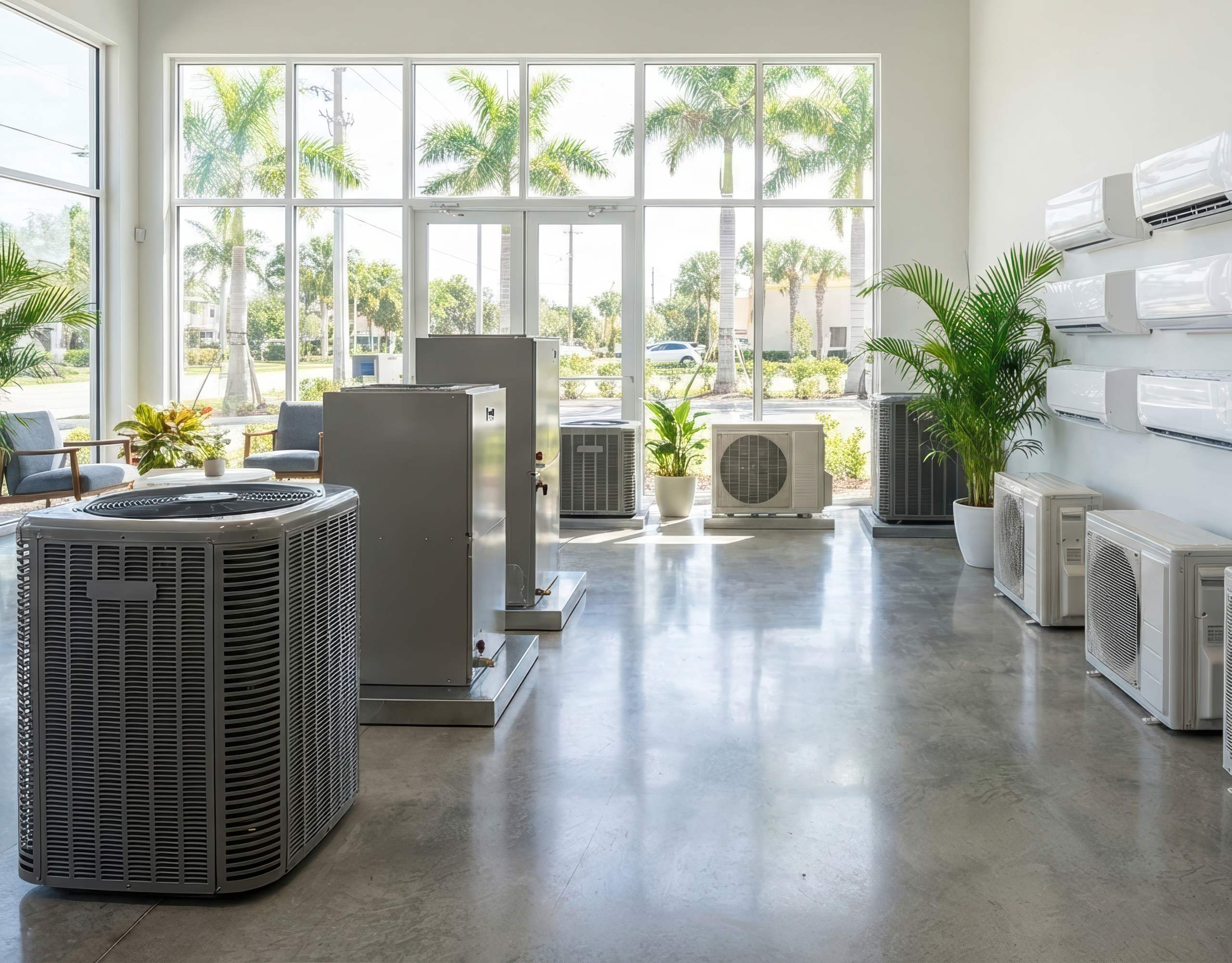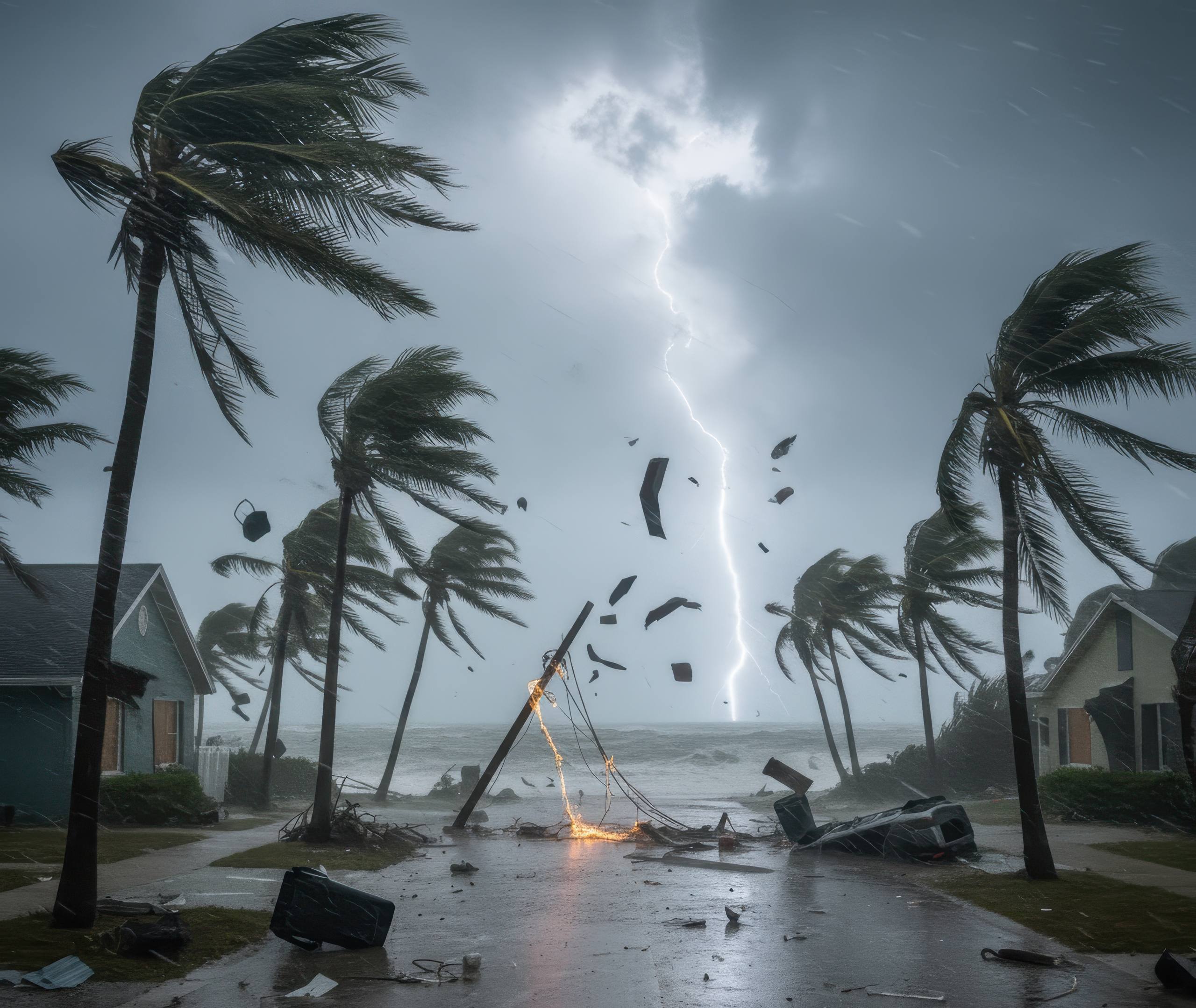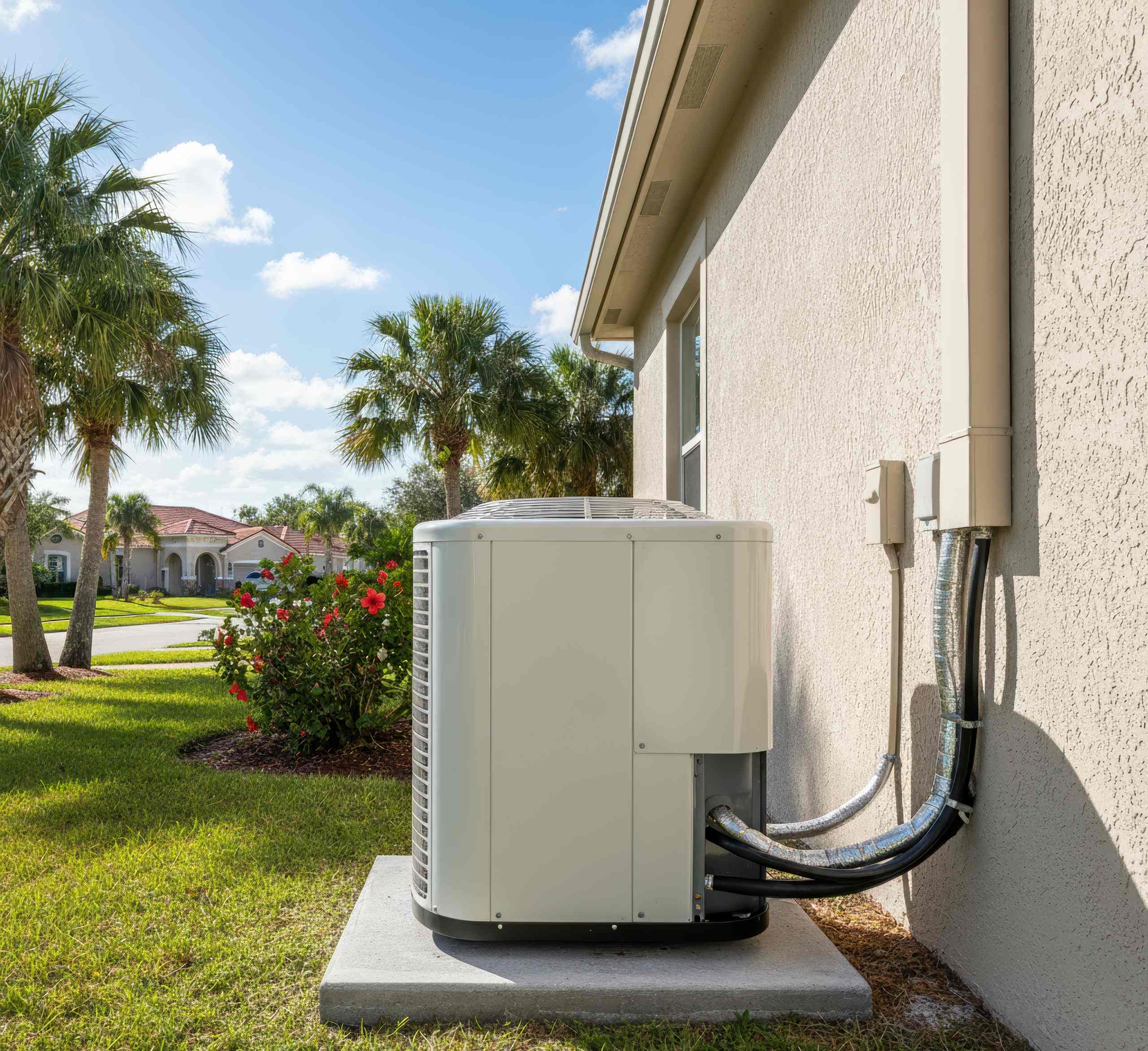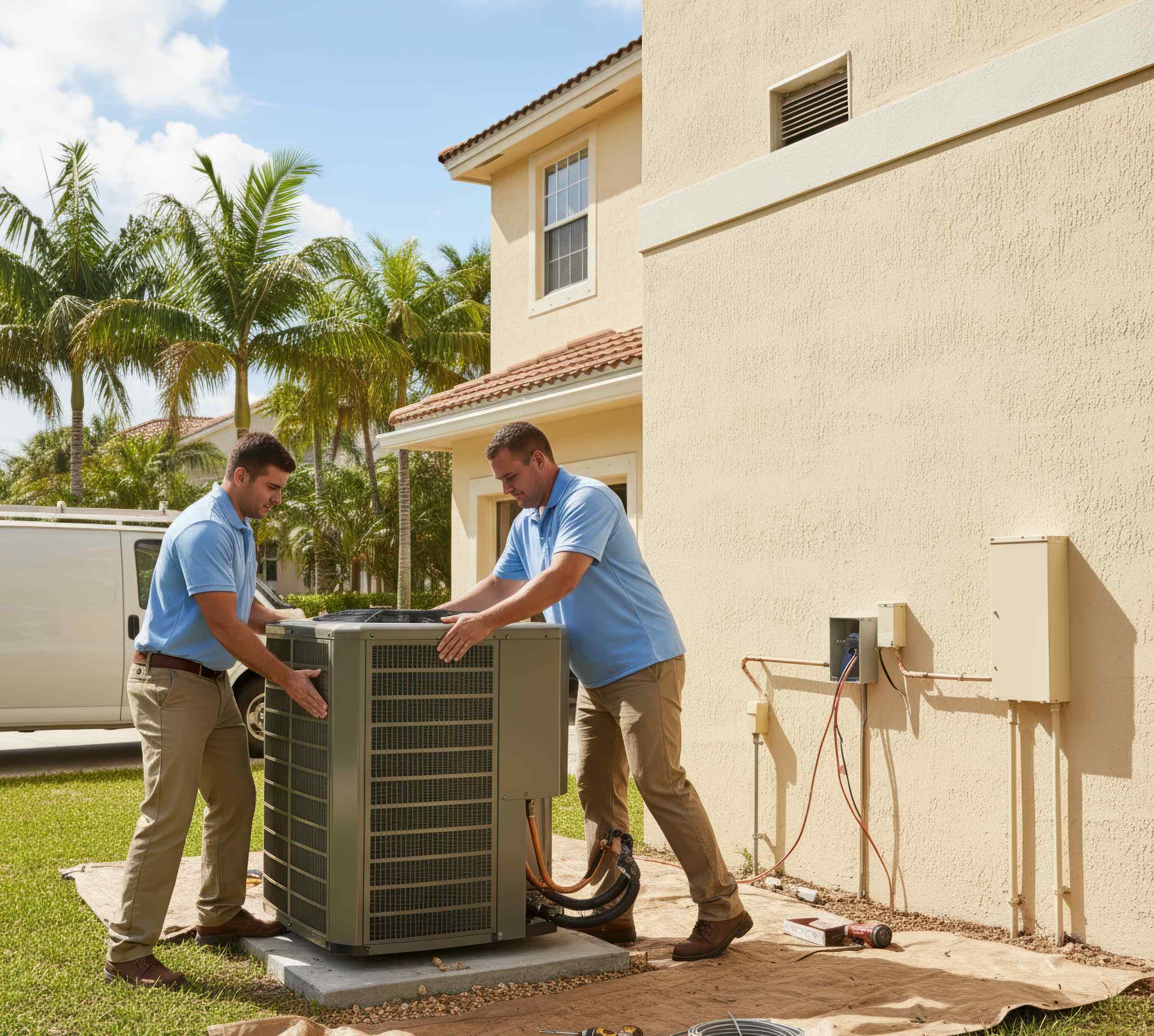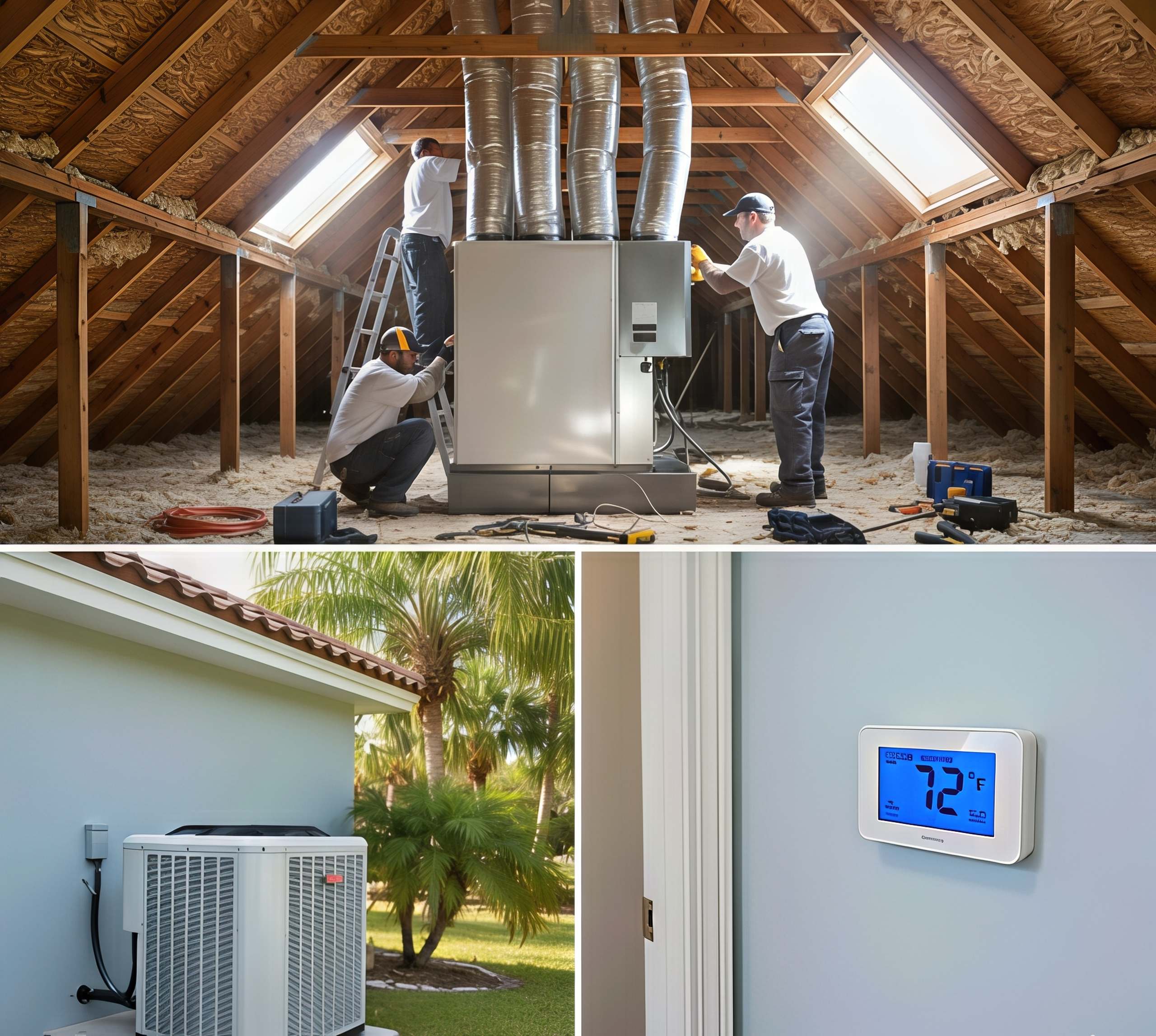The ideal climate we experience in the Sunshine State means few of us would swap this location for any other in the U.S.
As long as we have our air conditioning, that is.
But does it ever get too cold outside that we don’t need or shouldn’t use our air conditioning? If so, at what temperature should the AC be switched off—and will continuing to run it damage our cooling system?
After all, it can be relatively cool outside but 10-15 degrees warmer (and still very humid) inside the home on some days, especially if you get a lot of sunlight and don’t open the windows.
Whether you’re moving to Florida or are new to the state, it may surprise you how low temperatures can go. And for those of you who’ve lived here for years and run your AC all year round, here are some answers to the main questions about running AC in cold weather…
What’s the temperature range in Florida?

STAY COOL ALL YEAR ROUND WITH ONE WAY AIR…
The team at One Way Air installs, services, and repairs all types of air conditioning systems in Southwest Florida. Get in touch with us here for a quote or call 239-233-4356 in emergencies.
According to Florida climate statistics from 2023, the average mean monthly temperatures (in Fahrenheit) were as follows:
| Jan | Feb | Mar | Apr | May | Jun | Jul | Aug | Sep | Oct | Nov | Dec | Annual |
|---|---|---|---|---|---|---|---|---|---|---|---|---|
| 61.9 | 67.5 | 69.1 | 73.2 | 76.3 | 80.5 | 84.1 | 84.9 | 80.5 | 73.5 | 66.6 | 61.4 | 73.3 |
So, the average monthly temperature never fell below 61.9F in 2023. That, however, doesn’t mean that it never gets too cold to run AC in Florida.
Within that averaged mean monthly temperature is a wide range between night and day temperatures, as well as a range of temperatures depending on precise location.
One Way Air is based in Fort Myers, for instance. A sample of the average monthly highs and lows here (taken from statistics between 1991 and 2020) shows this:
| Month | Nov | Dec | Jan | Feb |
|---|---|---|---|---|
| High | 81.3 | 77.3 | 75 | 78 |
| Low | 61.8 | 57.3 | 54.3 | 56.6 |
| Average | 71.5 | 67.3 | 64.7 | 67.3 |
| Source | ||||
These statistics are more revealing than simple monthly averages for Florida but they still don’t tell the picture of how cold it can get in Florida as they show the average high and low temperatures over an extended period.
The lowest temperature recorded at Naples Municipal Airport (near Fort Myers) in the winter of 2023/24, for instance, was 45 degrees in January. That’s not too many degrees above when ice starts forming.
Although snow in southern Florida is extremely rare, these statistics show how low the temperatures can get—even with the globe in general warming up.
But is it too cold to run the AC?
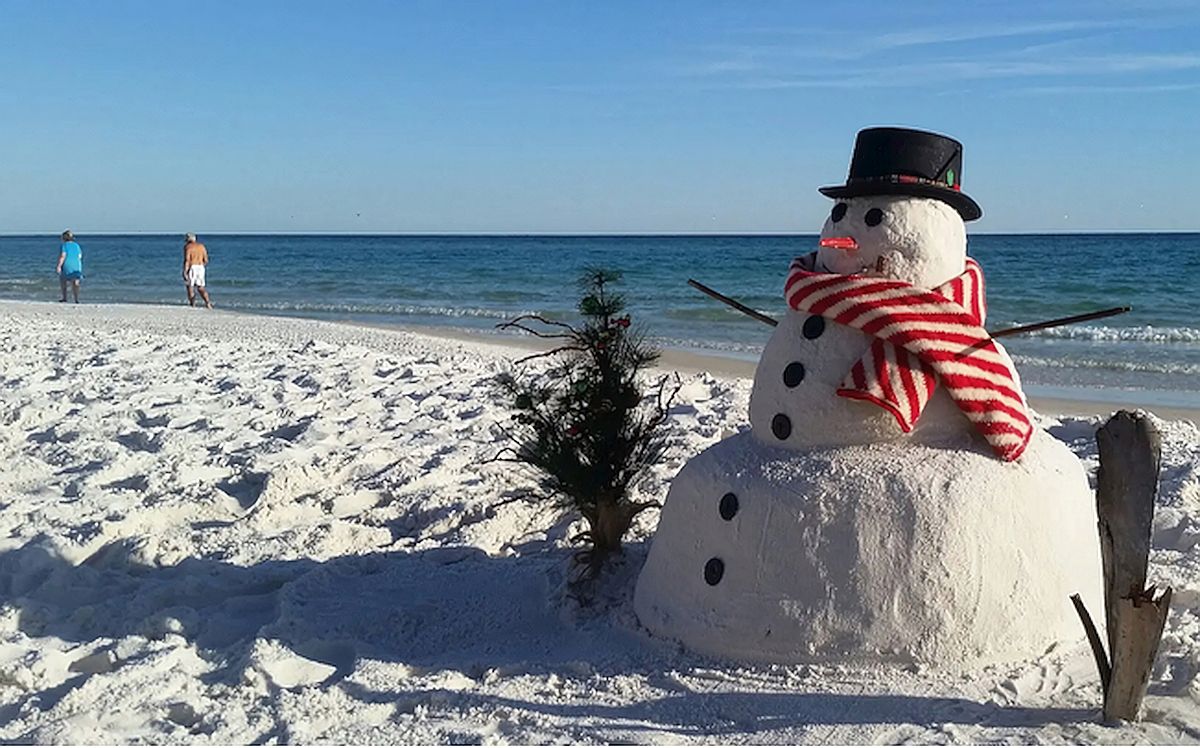
When is it too cold to run AC in Florida?
You may not need to run AC when the temperatures hit the mid-to-high 60s. unless your home retains heat. Running the AC in these temperatures can put extra strain on the system but most modern air conditioning systems can stand up to plenty of wear and tear. They also come with sensors to prevent functioning when the outside air temperature is too cold, protecting the long-term health of the system.
In Florida, 96 percent of homes are air-conditioned and 90 percent have central air conditioning installed—the highest in the country. This is a good indication of how much we rely on AC. The bottom line is that most of these systems are not designed to function well in cold weather (below the mid-60s).
Ideal indoor temperature range
AC systems in Florida must handle both the heat and humidity, which work together to quickly make indoor air hot and clammy without proper cooling. Normally, however, when the temperature in the home gets down into the 60s, it’s cool enough.
Some suggest that the ideal home indoor temperature is between 68 and 76 degrees. This usually boils down to personal preferences but the range is seen as ideal for both comfort and energy efficiency for most people.
Note that some people prefer to sleep in temperatures below this range—often around 65 degrees—but they are snuggled up warm in bed, which makes a big difference to one’s comfort levels.

If the temperature outside is lower than this (and we’ve seen that for a few months per year, it often is in Florida), there may be no need to run air conditioning.
Even those who like very cool homes at around 60 degrees will have days when the temperature dips below this level—and it’s advisable to ensure that the air conditioning is off.
Safeguards for AC systems in cold weather
The good news is that inbuilt low-temperature sensors in almost all AC units made today will prevent operation in conditions that are too cold, protecting the long-term health of your AC system and your family’s comfort.
In most cases, the minimum temperature at which a modern AC will function properly is around 50-60 degrees.
Most thermostats don’t have settings much below 60-65 degrees anyway. Ultimately, then, you will not even be able to turn the AC on if the outside air temperature is too low.
Will running AC in cold weather damage it?
To understand what could happen by running AC in cold weather, we need to understand more about how central AC systems work.
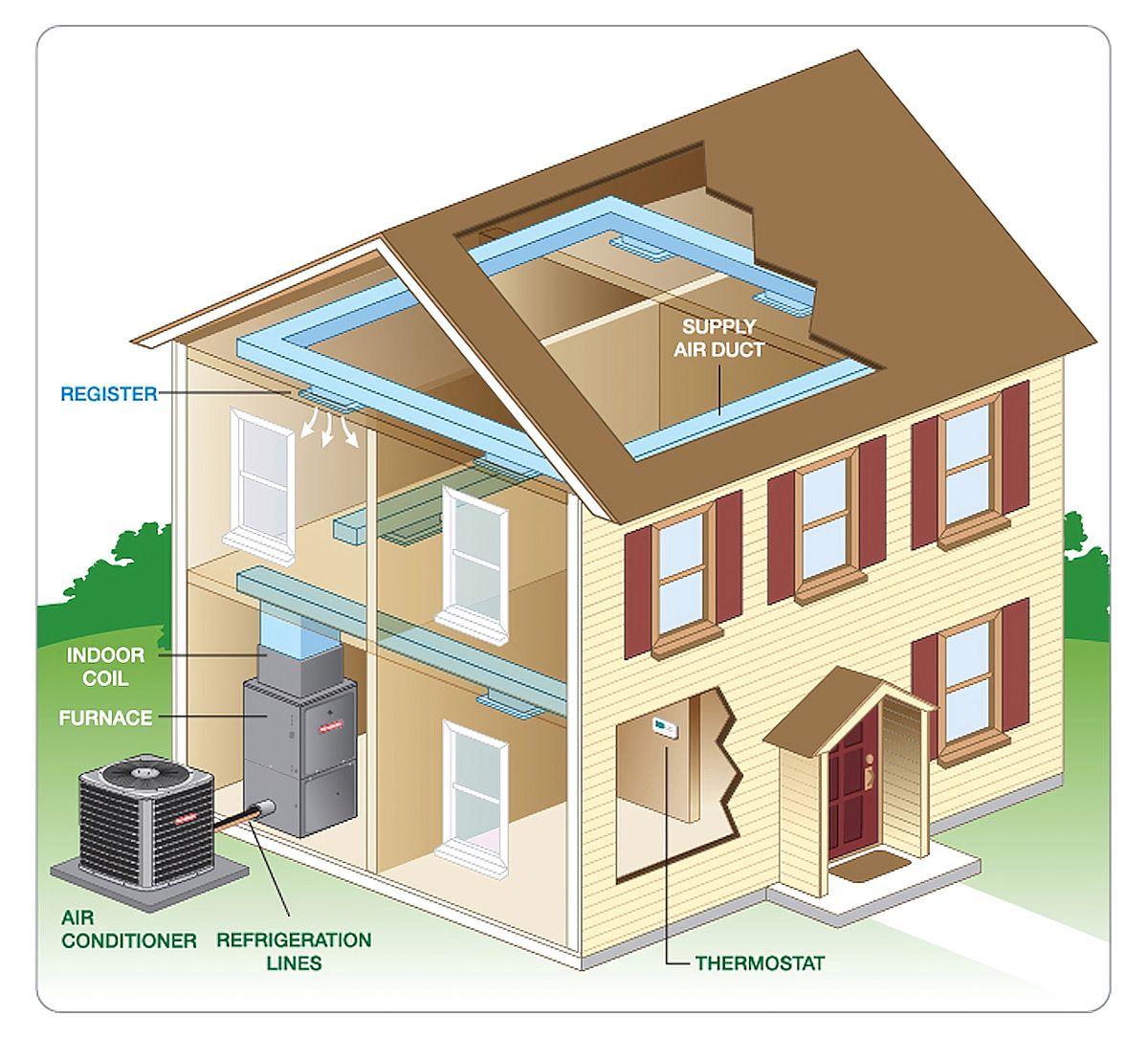
Central air conditioning systems extract heat and humidity from a home’s interior and release it outdoors. This heat transfer process relies heavily on the use of refrigerant, which is a substance that changes from liquid to gas and back again as it absorbs and releases heat, flowing through a series of coils and pipes between the indoor unit (the evaporator) and the outdoor unit (the condenser). This process requires a conducive outdoor temperature and the cooling cycle is then repeated until the desired temperature set by the thermostat is reached.
If the outdoor temperature drops. the efficiency of this heat exchange process can be reduced and the safe function of the AC can be compromised.
As we’ve seen, manufacturers typically specify the lowest outdoor temperatures at which AC units can operate without risking damage and have inbuilt safeguards to prevent them from operating in colder weather.
For older systems without these safeguards, the most common types of problems caused by AC running when it’s too cold include:
Refrigerant problems
If the temperature outside dips below 60 degrees or so, the condenser may not be able to release enough heat to cool down the refrigerant and return it to liquid form to start the cooling cycle again inside the home.
This can cause high pressure in the system and damage the compressor or other components of the unit. A damaged compressor may require expensive AC repairs or replacement.
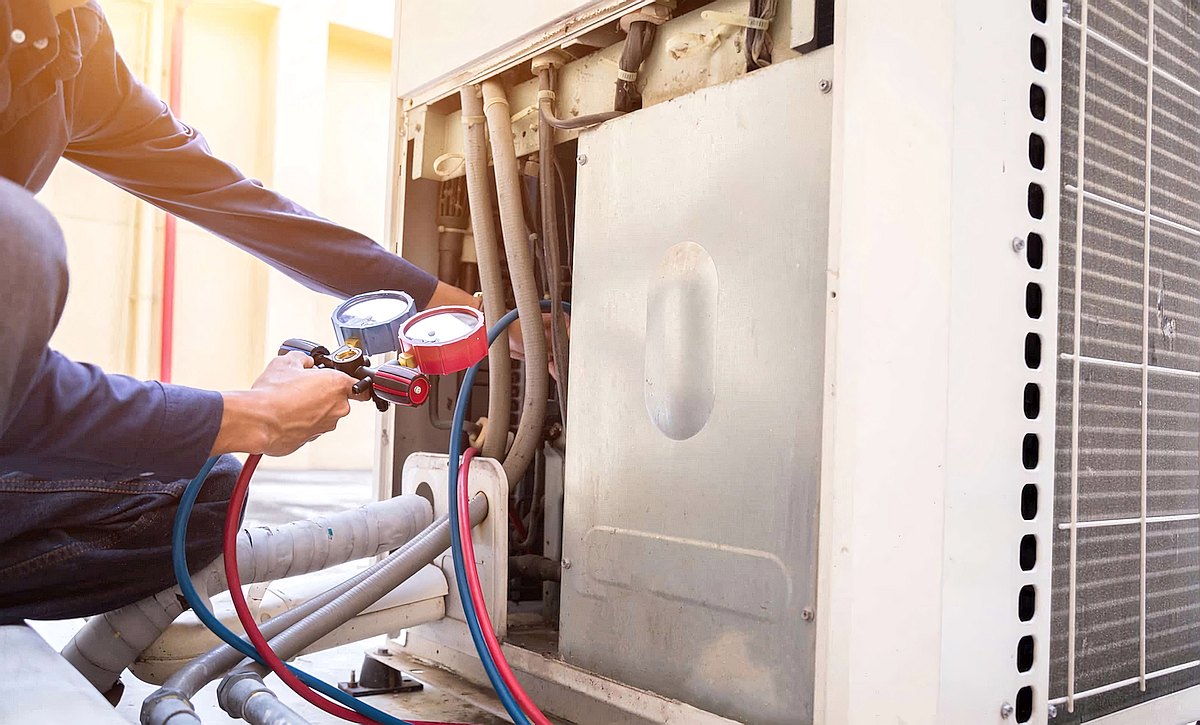
Freezing in the outdoor unit
The outdoor AC unit contains the compressor and coils, essential to the heat transfer process. It pumps refrigerant through the system to cool the air inside the home. The compressor may heat up excessively in cold weather, which is bad news for the longer-term health of the system.
A frozen AC can also be a problem if you run the system in very cold weather (typically 35-40 degrees or below). Moisture in the air condenses and then freezes on the coil surfaces. This will block the airflow and lead to an inefficient or malfunctioning AC system. Freezing can also cause leaks or cracks in the pipes due to the expansion and contraction of ice.
Thickening of lubricant
High-grade lubricant oils help the mechanical parts of your AC system to run smoothly. They are essential for the performance of the compressor and other moving parts. Usually, when the AC is on, the weather is warm and the lubricant can do its job properly.
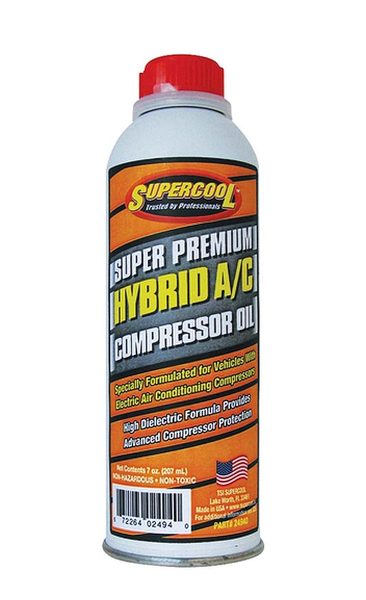
However, when the temperatures drop, the lubricant can thicken and become viscous, potentially causing friction, overheating parts, and affecting the efficiency of the compressor. Overworked parts can damage the system and result in a breakdown requiring emergency repairs.
These types of AC problems will need professional AC troubleshooting and fixes from a qualified HVAC technician and should not be attempted as DIY jobs.
Tips for optimizing AC usage in cold weather
With energy costs rising, most Florida homeowners need to balance the comfort requirements of their household with energy efficiency.
Other hidden AC costs are incurred if you place extra strain on the system and cause premature wear and tear that requires costly repairs or replacement.
In summary, here are a few quick tips for running your AC efficiently and minimizing both wear and tear and energy wastage during the cooler months in Florida:
- Avoid using AC in temperatures below 60-65 degrees
- Use programmable thermostats that can be controlled remotely
- Consider your clothing to minimize the need for cooling and heating in your home
- Ensure your home is well insulated to seal cold or warm drafts affecting the indoor air conditions
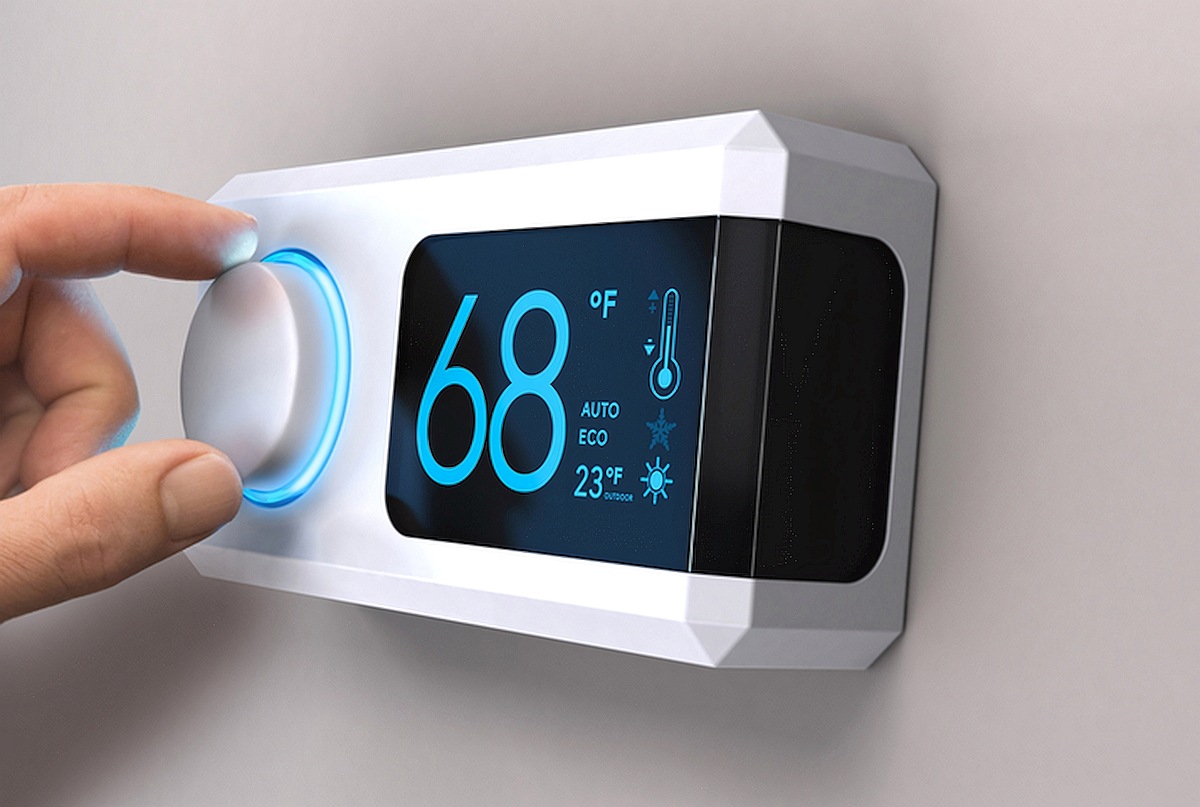
FAQs
How many months should I run my AC for in Florida?
You will need your AC for at least eight months per year in Florida—and often more. Generally speaking, from March to October, you will use your AC frequently and it will be busiest from May until September. With highs well into the 70s or even 80s on some winter days, your AC should be ready to go even in December and January.
If I want to test my AC, what’s the ideal outside temperature?
If you think your AC unit may not be functioning properly during a cooler period and you need to test it, it’s best to wait for the temperature to rise to at least 60 degrees Fahrenheit for at least three days to allow the lubricant oils to warm up and prevent ice from forming on the condenser.
Once the temperatures rise or if your AC is showing any signs of needing a tune-up, it’s a good idea to organize air conditioning maintenance for your system before the hotter months kick in anyway…
What if I have a ductless mini-split system?
A ductless mini-split system, which consists of one or more indoor units connected to an outdoor unit by a refrigerant line has no ducting to distribute cold air in the home. It allows you to control each indoor unit separately according to your comfort needs.
Some ductless mini-split systems have sensors that prevent them from running when it’s too cold outside but those with built-in heaters are designed to provide some heating during colder periods and are therefore able to run in cold weather.
Can you use window units in cold weather?
Window AC units with indoor and outdoor components in one box are still used in some Florida homes, though they are a less common sight than central AC or ductless mini-split systems.
There are quite a few disadvantages of window units but many can work in colder weather. Some units have thermostats that limit their lowest setting to just below 60 degrees or vents that allow you to let in fresh air from outside.
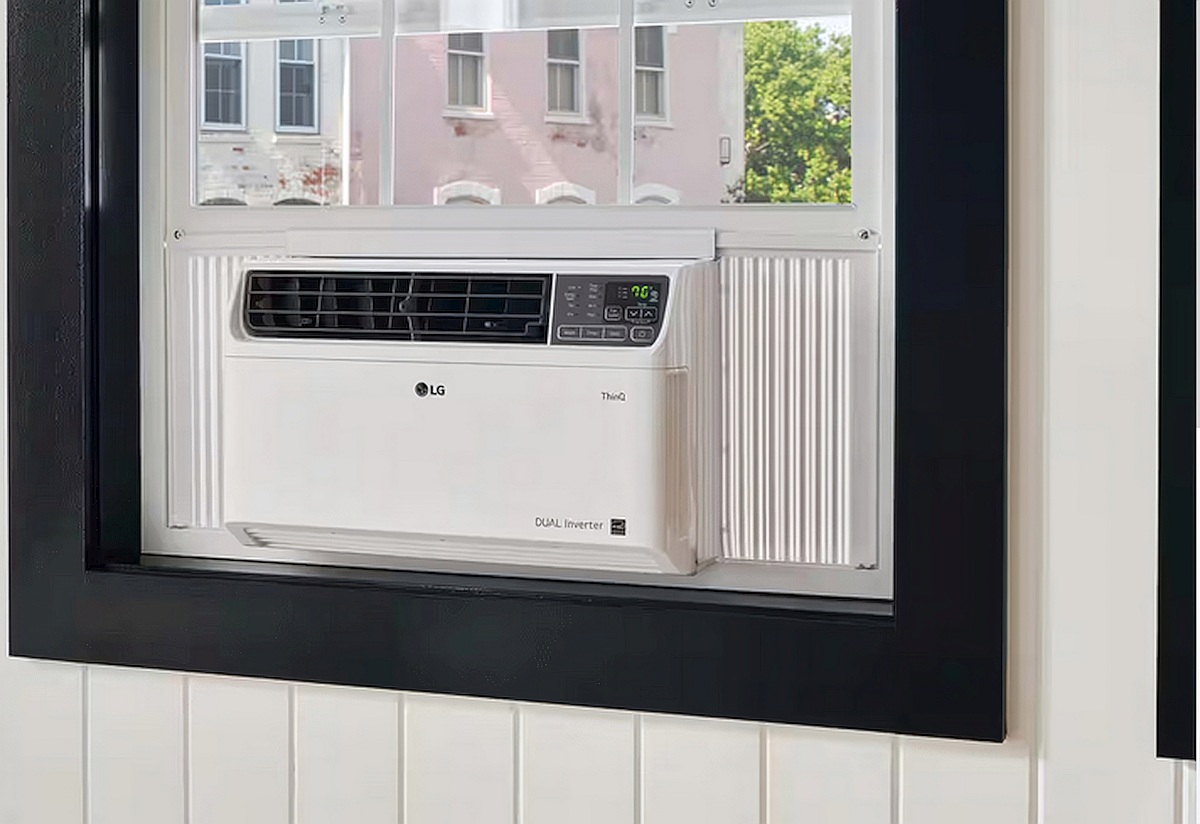
Prolong the life of your AC system…
AC systems are major costs for most Florida homeowners. It’s a no-brainer to try to protect your investment—both for your pocket and for your family’s comfort levels.
To prolong the life of your central AC system, it’s best not to run it for extended periods below 65 degrees and certainly not if the temperature dips into the 50s or 40s as it can do in wintertime in Florida.
Check with the manufacturer or your AC installation company about safe limits for running your AC and whether there is an automatic limit switch that kicks in if the temperature falls below a certain threshold.
Besides this, don’t forget to also book regular AC tune-ups to keep your system in tip-top condition…
AC tune-ups and repairs in SWFL
If you’re in SWFL and have any issues with your cooling system, contact One Way Air to arrange a full inspection and fix.

